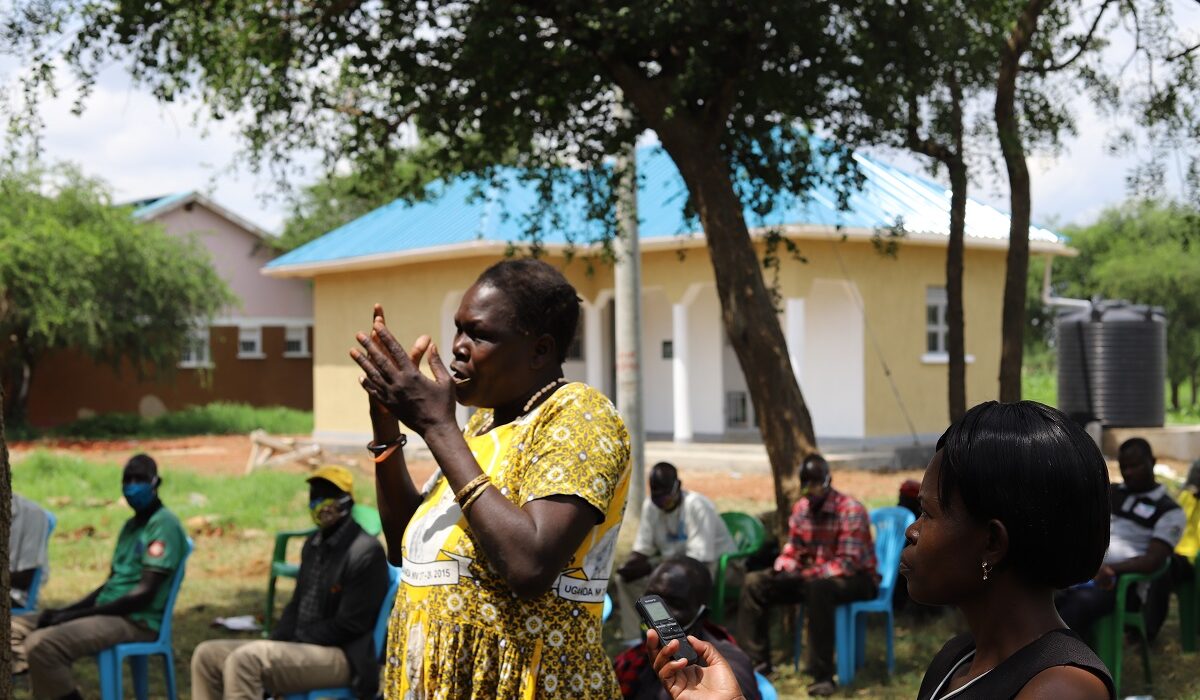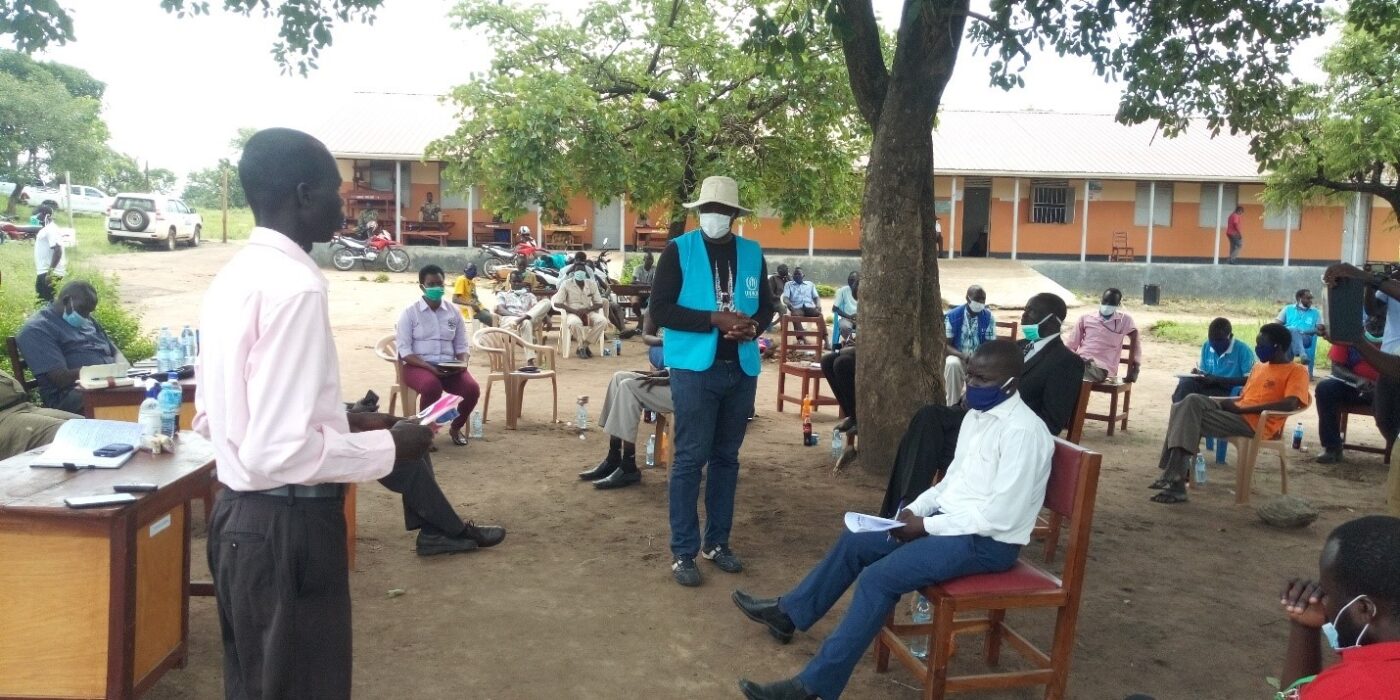Monthly District Peace Committee Meetings in Kotido, Yumbe and Adjumani
From 19th to 25th June 2020, The Peace Centre facilitated the meeting of District Peace Committee meetings that had a total of 142 (42 females and 100 males) participants. The meetings provided platforms where Women Peace Mediators presented women peace and security concerns including; the impact of COVID 19 on women, increasing conflicts in the project districts that called for the safety of women and girls, spaces for women’s participation in peacebuilding, peace meetings and complete disarmament, protection of the unprotected kraals, tracking and recovery of stolen animals, need to resume peace initiatives since the Warriors took advantage of the lockdown and conflicts escalated.
Read More “Monthly District Peace Committee Meetings in Kotido, Yumbe and Adjumani”


